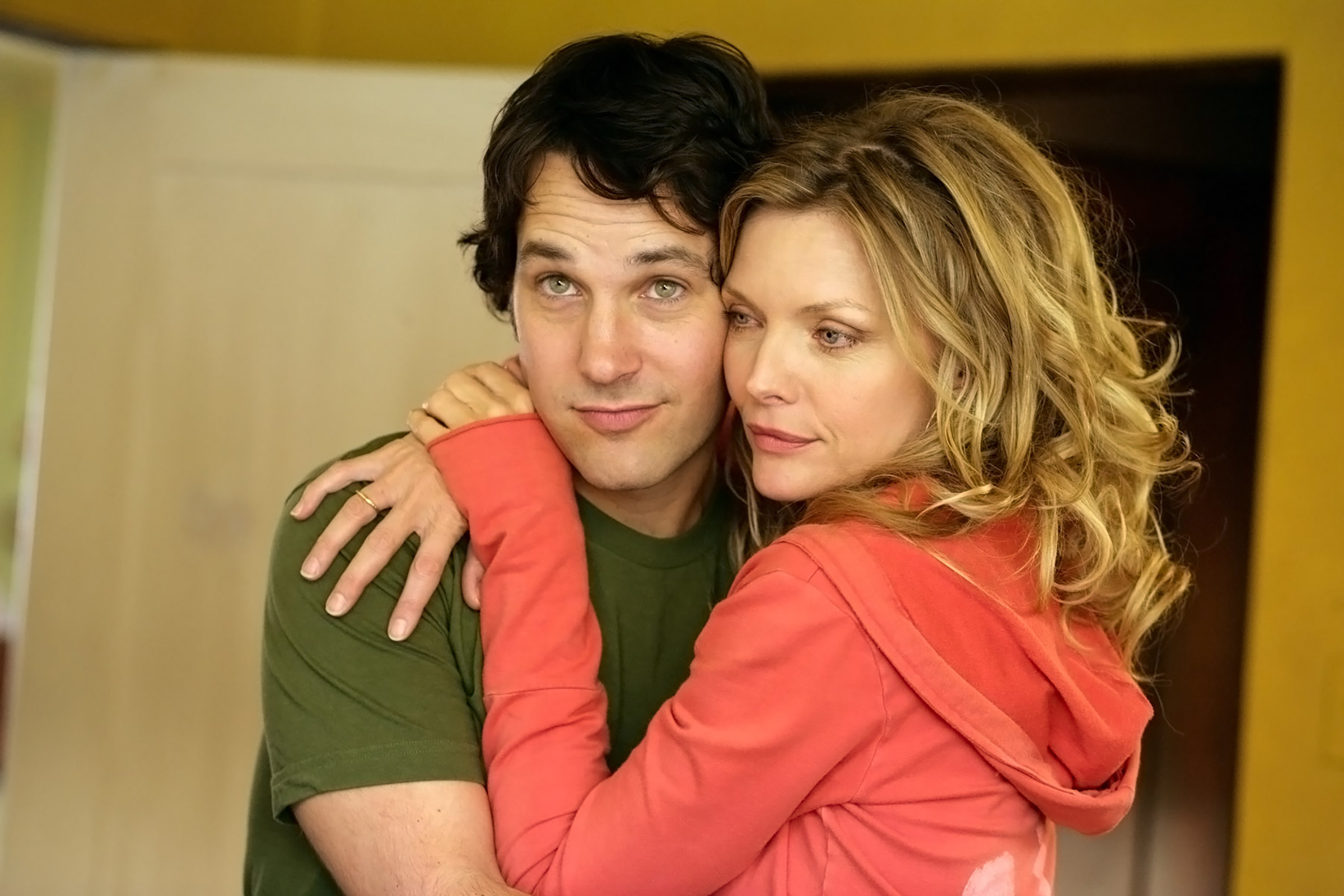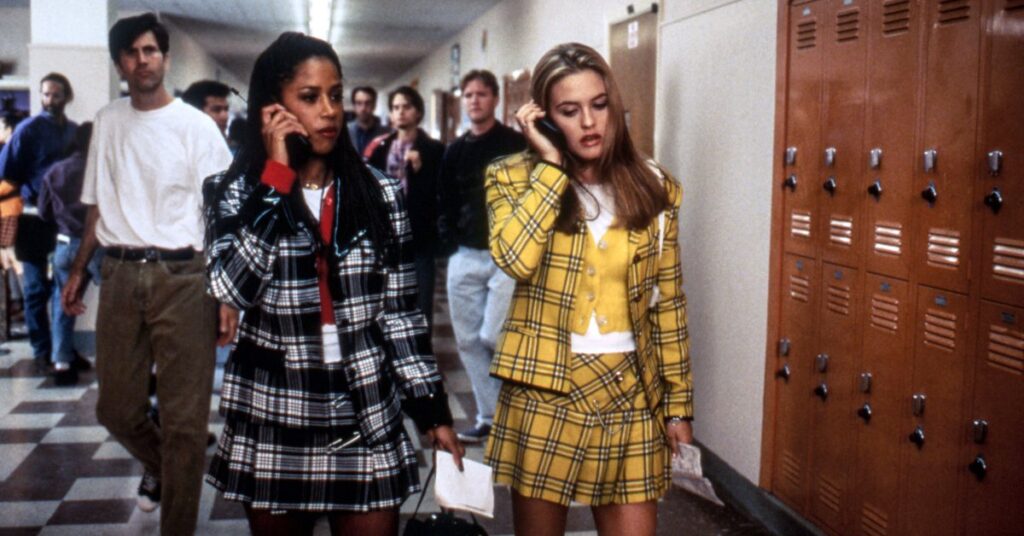How do you measure the worth of a filmmaker’s career? Do you tick off box-office returns, or the awards lined up on a shelf? Which is a better determination of success, a string of hits or a film that lives on in the cultural imagination for decades, and counting?
Or how about this: Can you measure a career in terms of generosity of spirit?
Writer-director Amy Heckerling’s Clueless turns 30 on Aug. 19, and if she’d made no other movies, this delightful modern reimagining of Jane Austen’s Emma would have been an accomplishment by itself. Alicia Silverstone’s Cher, a Beverly Hills high school student with a closet of riotous and costly mix-and-match outfits and a knack for negotiating higher grades without actually earning them, comes off as shallow and spoiled. But there’s kindness and decency there too: she tries her hand at matchmaking, at first to further her own aims, only to realize that she likes bringing people together. She’s too pragmatic to want love for herself, until she’s forced to acknowledge that she’s fallen for the guy she’d always thought of as an annoying brother figure, Paul Rudd’s Josh, the son of her father’s ex-wife.
Clueless is both original (credit Heckerling with bringing the phrase As if! into the lexicon) and expertly crafted (its smart, breezy gags are strung together as gracefully as a strand of pearls). It also shows great affection for its characters, even while mocking them gently. When Cher refers to one of the great sword-and-sandal epics as “Sporadicus,” you love her more, not less: she’s not demeaning movies and experiences that are unfamiliar to her—she’s just so eager that she bungles some of the specifics.
That’s the Heckerling touch, the mark of a filmmaker who has always led with confidence rather than ego—which is why the industry, incapable of grasping the difference between the two, never knew what to make of her, not even after she’d made one of the greatest teen movies of the 1980s, if not all time, 1982’s Fast Times at Ridgemont High. Maybe it takes an outlier to make comedies that endure, as Clueless and Fast Times have. And maybe the lesson of Heckerling’s checkerboard career isn’t that today’s fractured world of filmmaking needs more people who know how to play the game—it’s that we need more outliers who play on their own terms.
Today we regularly and openly champion women filmmakers, to the point where it can feel performative. But Heckerling and a small group of her contemporaries—like her friend Joan Micklin Silver, who’d self-financed her first film, the marvelous immigrant-in-New York story Hester Street (1975)—were striving to make films when women directors were still treated as interlopers, not to be trusted with big studio budgets. At 28 the Bronx-born Heckerling—a graduate of New York University, with a master’s in film from the American Film Institute—made her feature debut with Fast Times, adapted from Cameron Crowe’s book about teenage life in a Southern California high school. Fast Times was like no other teen movie at the time, particularly for the unvarnished way it presented teen pregnancy—and abortion. Universal, the studio behind the film, nearly backed off when early test audiences responded negatively to that abortion subplot. The executives eventually relented, and Fast Times did well enough at the box office that Heckerling got to make two more films in quick succession: 1984’s gangster spoof Johnny Dangerously, which didn’t make money, and 1985’s National Lampoon’s European Vacation, which did.
But Heckerling’s biggest hit would be the 1989 comedy Look Who’s Talking, starring Kirstie Alley as a single mother whose son—first as an infant and then as a toddler—wisecracks like a sailor on shore leave, though only the audience can hear it. (Bruce Willis provides the kid’s voice.) The gimmick looks broad on paper, but the movie is both fun and stealthily forthright, a mischievously sympathetic film about a modern mom trying to hold it all together by herself. Sometimes the best way to deal with the most serious subjects is to treat them like a lark.
Next, Heckerling took on one of the movie’s two sequels, 1990’s Look Who’s Talking Too. Clueless would arrive five years later—but as adored as the film is today, it was only a moderate hit at the time. Heckerling’s language has always been the mainstream comedy—a surefire way to get the guys at the top to take you seriously—which may explain why, since Clueless, she’s never had the career she deserved. Her last feature was 2012’s amiable horror comedy Vamps, starring Silverstone and Krysten Ritter as vampire girls who strive to hang on to their vampirific youth (they feast only on rats’ blood) rather than be forced to age like humans. Since then, Heckerling has worked in television—directing episodes of Gossip Girl and Amazon Prime’s Red Oaks—and has turned Clueless into a musical, now playing in London’s West End.
But let’s track back to the idea of what it means to get “the career you deserve.” That’s what happens when you deliver profits to executives. But what if you’ve made good or even terrific movies that have simply failed to land? Heckerling’s so-called failures are better movies, with more heart, than many other comedy directors’ successes. In the 2000 Loser, Jason Biggs plays Paul, a sweet but unhip Midwestern kid who gets a scholarship to NYU, only to be met with the sneering savagery of his rich-kid roommates. His crush, Mena Suvari’s spiky, perceptive Dora, is involved with one of her professors (a weaselly Greg Kinnear). Loser is sharp and unyielding when it comes to human cruelty and boorishness; as always, Heckerling reserves her scrappy tenderness for the characters who deserve it.
You really see that affection in 2007’s I Could Never Be Your Woman, a film that, thanks to distribution-rights issues beyond Heckerling’s control, was never released in U.S. theaters, going straight to DVD. Michelle Pfeiffer plays Rosie, a writer and producer on a TV show about entitled but seemingly average teenagers. (Heckerling based the movie on her own experience adapting Clueless into a television series in the late 1990s.) Rosie is in her mid-40s and divorced, with an 11-year-old daughter (Saoirse Ronan, in her film debut). She hasn’t dated in forever. Then a new actor, Paul Rudd’s late-20-something Adam, signs on for her show. She’s reluctantly attracted to him. Is she too old? Is he too young? Most men wouldn’t entertain those questions for long, but they hit Rosie hard. Pfeiffer vests Rosie’s self-doubt with effervescent energy. There’s no need to feel sorry for her—but you can’t help wanting the best for her.

Though Paramount had initially bought the script for I Could Never Be Your Woman, the studio declined to make the movie. “There was some concern about doing a movie with an older female protagonist—not everybody’s favorite demographic,” Heckerling told Entertainment Weekly in 2008. She went with an independent producer, which is where the movie’s distribution woes began. Today, it’s easy to stream if you seek it out, though relatively few people even know it exists.
And that’s how a brisk, intelligent movie ends up languishing. It could happen to anyone, and it happened to Heckerling. In the early 2000s, when many of us were complaining about the lack of smart romantic comedies for adults, this picture, one with charm and bite, was hiding in plain view. Now, at a time when the big-studio theatrical release barely exists, it’s like a shining relic from a lost era. If this is what you leave behind when you haven’t had the career you deserve, maybe that just means you’ve made a series of right choices. Anyone who thinks of them as wrong turns is the real loser.
Read the full article here


